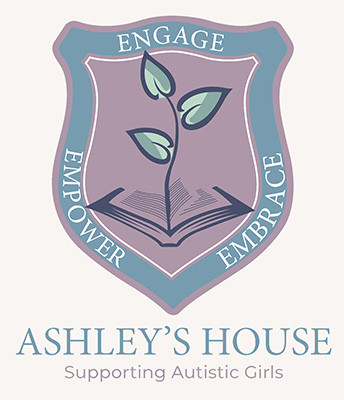Provisions & Benefits
Why Provisions for Autistic Girls Are Needed
-
Under-diagnosis and Late Diagnosis
Autistic girls are frequently under-diagnosed or diagnosed later than boys. They may mask or camouflage autistic traits, imitating neurotypical behaviours to blend in socially, which can make signs of autism less visible to clinicians, educators, and parents.
Misdiagnoses are also common, with girls often being labelled with anxiety or ADHD instead of autism. This can delay access to appropriate support and interventions.
-
Unique Social and Communication Differences
Autistic girls might have different social interests, often forming close friendships or small groups, which can make it seem like they’re less socially affected than autistic boys.
However, they may still struggle with social nuances, experience exhaustion from social interactions, and have difficulties with social anxiety and self-esteem, which may require specialised support to manage.
-
Different Special Interests and Play Patterns
Girls often have interests that align more with neurotypical peer interests (e.g., animals, books, fashion), which may not be recognised as “special interests.” However, these interests can be just as intense and may require attention and support.
Play patterns among autistic girls can include complex pretend play, which may mask social difficulties but can lead to misunderstandings or misinterpretations in social settings, leading to isolation or bullying.
-
Mental Health Risks
Due to camouflaging and societal expectations, autistic girls are at a higher risk of mental health challenges like anxiety, depression, and eating disorders. Provisions that focus on emotional regulation, self-advocacy, and social support are essential to help them develop positive coping mechanisms.
-
Sensory Sensitivities and Physical Health
Autistic girls may also have sensory sensitivities, and they can often feel pressured to suppress reactions, leading to burnout, stress, and physical health problems. Tailored provisions can address these sensitivities and teach coping strategies specific to their needs.
Benefits of Targeted Provisions for Autistic Girls
-
Early and Accurate Diagnosis
Tailored assessments that consider gender differences can lead to earlier and more accurate diagnoses, ensuring that girls receive timely support, avoid unnecessary mental health issues, and can access resources that meet their specific needs.
-
Support for Social and Emotional Skills
Provisions that focus on social communication in ways that feel safe and comfortable for autistic girls can help them form friendships, set boundaries, and develop emotional awareness.
Teaching social and emotional regulation tools, such as coping with social anxiety or understanding social cues, can help reduce the emotional toll that social interactions often take.
-
Reduced Masking and Burnout
When girls are taught strategies to embrace their authentic selves without masking, they can feel more comfortable and accepted. This helps decrease the risk of burnout and mental health issues associated with masking behaviours.
-
Empowerment and Self-Advocacy
Providing girls with self-advocacy tools empowers them to understand and express their needs in school, work, and relationships. This includes teaching skills like assertive communication and boundary-setting, which are particularly valuable for girls who may face unique social pressures.
-
Focused Support for Academic and Career Paths
Provisions that encourage girls to explore a range of interests and strengths can foster a more inclusive view of academic and career potential. Many autistic girls excel in fields that benefit from creativity, attention to detail, and empathy, and targeted support can help them succeed in these areas.
